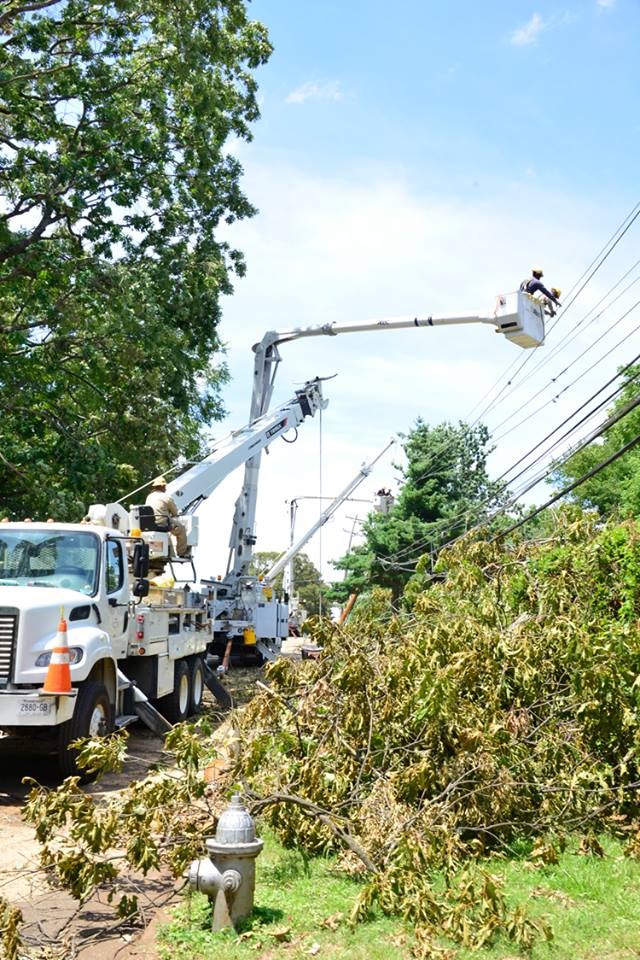 MLGW
MLGW
Switching to another power supplier could help Memphis Light, Gas, and Water (MLGW) save money in one area, and invest in another, such as infrastructure, which could reduce power outages in the long run, says Memphis Mayor Jim Strickland.
After heavy storms hit Memphis on May 18th, approximately 27,000 MLGW customers were without power and some didn’t have it restored until Tuesday, May 21st. Strickland said in his weekly newsletter last week that that’s “unacceptable.”
“First, let’s talk about power outages,” Strickland wrote. “We had too many of them for too long after Saturday night’s storm. It’s unacceptable. So, how to fix it?”
The mayor said the city’s electric infrastructure is “old and in dire need of an overhaul.”
However, Strickland said that’s a “high-dollar endeavor,” and paying for infrastructure upgrades would be a challenge.
To that end, the mayor said the city is “serious about the possibility of finding major savings” that could come as a result of a switch from the Tennessee Valley Authority to a new power supplier with lower rates.
Strickland said switching could save MLGW money that would fund new infrastructure.
Infrastructure includes everything from poles, wires, transformers, and the metering system, said MLGW CEO and president J.T. Young.
[pullquote-2]
Young discussed similar infrastructure concerns Thursday during a Facebook Live discussion, but said that improving infrastructure will not reduce all outages.
Young said the infrastructure challenges that we have are to some degree significant, but that when severe weather like the May 18th storm hits Memphis, “we were going to experience outages regardless of the type of infrastructure.”
But, Young said the upgrades that the utility is planning would minimize the number and length of outages.
“I think the perception might be that nothing’s been done over the past several years with our system,” Young said. “When things break, we replace them. That costs money.”
Looking at past budgets and data, Young said MLGW has invested “quite a bit” of both capital and operational funds into maintaining the system.
“I would equate it to maintaining your car,” Young said. “You take it in every so many miles and you get oil changes and those kinds of things, but you really don’t do an overhaul of your engine or transmission or what have you, except for rare situations.”
Young said this is that rare occasion in which much of the utility’s system is in need of an overhaul.
“We’ve got some very, very old equipment,” Young said. “You can maintain equipment, which is what we’ve done and I think our folks have done a great job at keeping the system up and running, but it is certainly time to make some major investment in equipment.”
[pullquote-1]
Some of those investments will be put into automated services, underground cable repairs, and tree trimming, which will result in fewer outages, Young said.
“We just know it’s time to make some rather significant investments from a preventative standpoint, where we will not have to be reacting all of the time,” Young said. “Now it’s time to make some much needed investments so we aren’t always being reactive.”
In the meantime, as summer approaches, customers can expect more storms, Young said.
“No matter what type of infrastructure we have, we’re going to have outages,” Young said. “The resilience of our infrastructure is important, but even with the most resilient infrastructure, you will have occasional outages.”
When outages occur, Young said the utility moves “as quickly as we can” into the restoration process because “we know we don’t just deliver electricity.
“We are delivering hope. When you don’t have power, you really feel like sometimes you don’t have hope, especially the longer it goes.”